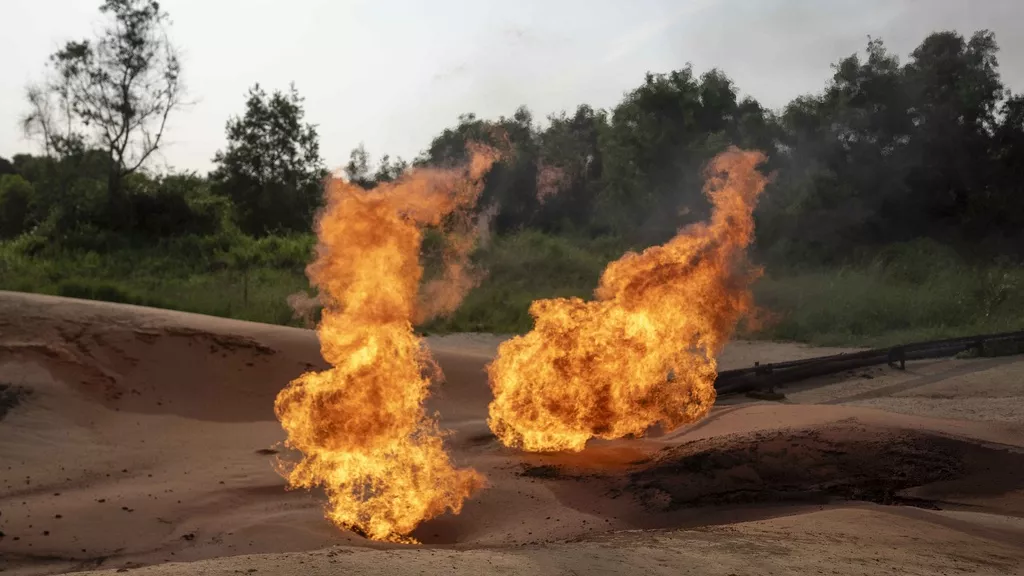DRC Halts Auction of 27 Oil Blocks Amid Concerns Over Competition and Environmental Impact
3 min read
A flare on fire in an oil extraction area in Moanda, DRC, on December 23, 2023.

A flare on fire in an oil extraction area in Moanda, DRC, on December 23, 2023.
The Democratic Republic of Congo (DRC) has announced the cancellation of an auction for 27 oil exploration sites, a decision attributed to late bids and a lack of competitive interest. The auction, initially launched two years ago, fell short of expectations, prompting the government to reevaluate its approach. Oil Minister Aime Sakombi Molendo stated that a new auction would be organized, although specific details regarding the timetable and the number of blocks to be auctioned were not disclosed.
These 27 oil blocks are believed to hold an estimated 22 billion barrels of oil, highlighting the DRC’s potential as a significant player in the global oil market. Despite this, drilling activities have historically been concentrated in a limited area along the Atlantic Ocean and offshore, with the country’s vast reserves largely untapped.
The decision to cancel the auction is expected to have far-reaching implications for the DRC’s oil industry. Officials are hopeful that a future auction could be more successful in attracting competitive bids from interested parties, allowing the country to better capitalize on its natural resources.
However, environmental concerns have been mounting since the auction’s inception in July 2022. Various environmental agencies have raised alarms about the potential consequences of expanding oil drilling operations, both within the DRC and beyond its borders. The DRC is home to a significant portion of the Congo Basin rainforest, the second largest rainforest globally, and a vast expanse of tropical peatlands, which together play a crucial role in carbon dioxide capture.
These ecosystems are vital for global climate stability, absorbing approximately 1.5 billion tons of carbon dioxide each year, equivalent to about 3% of global emissions. Alarmingly, many of the proposed auction plots overlap with protected areas, including Virunga National Park, which hosts some of the world’s rarest gorilla species.
The interplay between economic development and environmental conservation is at the forefront of discussions surrounding the DRC’s oil exploration initiatives. While the government seeks to bolster its economy through resource extraction, environmentalists argue that the long-term consequences could outweigh immediate financial gains. The DRC’s rich biodiversity and unique ecosystems are invaluable assets that must be preserved for future generations.
In light of these challenges, the DRC’s government faces a difficult balancing act. They must navigate the pressures of attracting foreign investment while also addressing the legitimate concerns of environmental advocates. The international community is watching closely, as decisions made in the DRC will not only impact the country but also have implications for global climate efforts.
Looking ahead, the DRC will need to engage in thorough consultations with various stakeholders, including local communities, environmental organizations, and international partners, to create a comprehensive strategy for oil exploration that prioritizes sustainable development. The prospect of a new auction could serve as an opportunity to implement more stringent regulations and safeguards to protect vital ecosystems while pursuing economic growth.
As the DRC reconsiders its auction strategy, the eyes of the world will be on its next steps. The decisions made will be critical not only for the future of the country’s oil industry but also for the preservation of some of the planet’s most essential natural resources. The path forward must seek to harmonize economic ambitions with ecological stewardship, ensuring that the DRC can leverage its rich mineral wealth without compromising its unique environmental heritage.